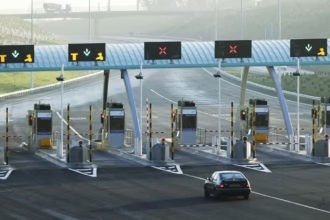Major CNG Vehicle Policy Changes May Provide Relief to CNG Auto Drivers and Commercial Vehicle Owners
The Delhi government’s recent extension of its Electric Vehicle (EV) policy has brought significant relief to thousands of CNG vehicle owners across the capital. The Delhi government has extended its Electric Vehicle (EV) Policy by three months and approved the continuation of power subsidies for domestic users, farmers, lawyers with chambers, and 1984 riot victims. Officials clarified there is no plan to ban auto-rickshaws or any category of vehicles.
This development comes as welcome news for those concerned about the proposed restrictions on CNG vehicles outlined in the draft EV Policy 2.0. The CNG vehicle policy Delhi 2025 update represents a more balanced approach to environmental concerns while considering the livelihood of thousands of drivers and vehicle owners.
What Changed in the CNG Vehicle Policy Delhi 2025
The initial draft of Delhi’s EV Policy 2.0 had proposed aggressive timelines for phasing out fossil fuel vehicles, including CNG-powered auto-rickshaws and commercial vehicles. However, the recent policy extension and clarifications have modified these proposals significantly.
The most significant change is the clarification that there will be no immediate ban on CNG auto-rickshaws or other categories of vehicles. This reverses earlier concerns about the CNG vehicle policy Delhi 2025 that would have affected thousands of auto drivers who depend on these vehicles for their livelihood.
BS-VI Compliance Requirements for Commercial Vehicles
While the complete ban has been avoided, the government has introduced new compliance requirements. The Centre informed the Supreme Court on Tuesday that only BS-VI compliant CNG, LNG, and electric goods vehicles — light, medium, and heavy — will be permitted entry into Delhi starting November 1, 2025. This restriction, however, will not apply to vehicles registered in Delhi.
This means that commercial vehicle operators need to ensure their CNG vehicles meet BS-VI emission standards to enter Delhi from November 1, 2025. The CNG vehicle policy Delhi 2025 now focuses on emission standards rather than outright bans, providing a more practical approach to air pollution control.
Impact of CNG Vehicle Policy on Commercial Vehicle Owners
The policy extension has provided much-needed clarity for stakeholders in the transport sector. Auto-rickshaw drivers, who were previously concerned about losing their source of income, can now continue operating their CNG vehicles without immediate displacement.
For commercial vehicle owners, the new policy means they need to upgrade to BS-VI compliant vehicles if they want to enter Delhi from outside the city. However, vehicles already registered in Delhi are exempt from this restriction, providing some relief to local commercial operators.
Timeline for Future Changes
While immediate bans have been avoided, the government maintains its long-term vision for cleaner transportation. The CNG vehicle policy Delhi 2025 still includes future milestones for transitioning to electric vehicles, but with more realistic timelines that consider the practical challenges faced by vehicle owners and drivers.
The policy extension allows for better planning and preparation for the eventual transition to electric vehicles. This approach balances environmental goals with economic realities, ensuring that the shift to cleaner transportation doesn’t disrupt livelihoods overnight.

What Vehicle Owners Should Do Now
CNG vehicle owners should take several steps to prepare for the evolving policy landscape:
For Auto-Rickshaw Drivers: Continue operating as usual while staying informed about future policy developments. Consider exploring electric vehicle options for long-term planning.
For Commercial Vehicle Operators: If you operate vehicles from outside Delhi, ensure they meet BS-VI emission standards before November 1, 2025. Plan for potential upgrades or replacements of older vehicles.
For CNG Car Owners: Personal CNG vehicles are not immediately affected by these policy changes. However, keep monitoring developments in the CNG vehicle policy Delhi 2025 for any future updates.
Government’s Balanced Approach
The policy extension demonstrates the government’s commitment to finding balanced solutions that address environmental concerns while considering socio-economic impacts. Rather than implementing blanket bans, the focus has shifted to emission standards and gradual transitions.
This approach to the CNG vehicle policy Delhi 2025 acknowledges that environmental goals must be achieved without causing undue hardship to those dependent on these vehicles for their livelihood. The three-month extension provides additional time for stakeholders to adapt and prepare for future changes.
Future Outlook for CNG Vehicles in Delhi
The extended policy framework suggests that CNG vehicles will continue to play a role in Delhi’s transport ecosystem, at least in the near term. The government’s focus on BS-VI compliance rather than complete bans indicates a more nuanced approach to air pollution control.
As the CNG vehicle policy Delhi 2025 continues to evolve, vehicle owners and drivers can expect more consultative processes and realistic timelines for any future vehicles. This balanced approach helps maintain the delicate balance between environmental protection and economic sustainability in the transport sector.
The recent policy extension represents a victory for pragmatic policy-making that considers all stakeholders while working toward cleaner air and sustainable transportation in the nation’s capital.






